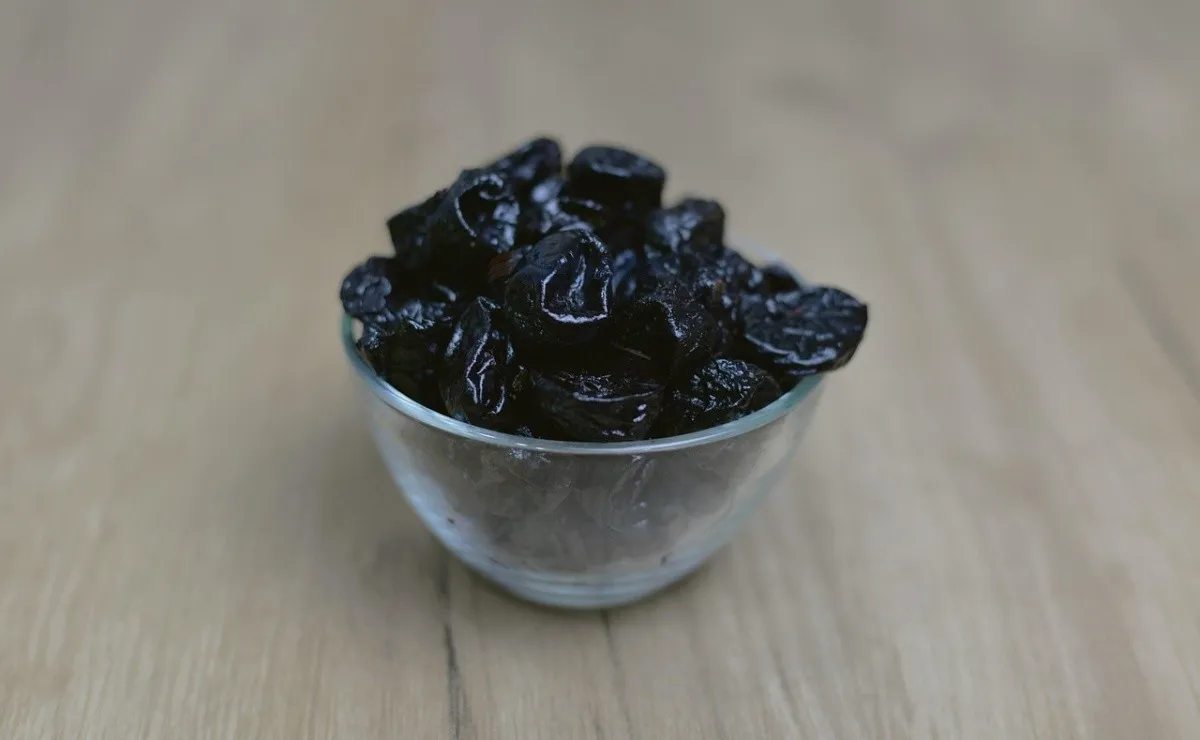Prunes, a product of dehydrating fresh plums, are a food known for their concentrated flavor and long shelf life. This process reduces their water content while enhancing their nutritional properties. Today, we’ll tell you about their healing properties and other benefits, how to consume them correctly, and list their disadvantages. Nothing is perfect.
Prunes are a source of fiber, antioxidants, potassium, magnesium, and B vitamins, which provide them with various health benefits. However, as with any food, they should be consumed in moderation to avoid possible adverse effects.
This nut is recognized for its ability to aid digestion, but its attributes go beyond that. Including it in the diet can positively influence bone and cardiovascular health. Recognizing both its positive benefits and potential drawbacks allows for informed and balanced consumption.
Beneficial properties
Prunes contain components that can contribute to better digestive health. Their richness in soluble and insoluble fiber, combined with sorbitol, a compound with a laxative effect, helps relieve constipation and regulate bowel movements. This promotes a more efficient digestive system and prevents common discomforts.
In addition to their intestinal impact, prunes provide antioxidants, such as polyphenols. These compounds are important for reducing oxidative stress in the body, protecting cells from damage caused by free radicals. This antioxidant action is linked to the prevention of various chronic conditions.
Another relevant aspect is its contribution to bone health. It’s vitamin K, magnesium, and boron content can help prevent bone density loss and promote bone strength. This is particularly relevant at life stages when bone health requires greater attention.
Prunes’ high potassium content also plays a role in regulating blood pressure by counteracting the effects of sodium on the body. Soluble fiber, meanwhile, helps reduce LDL cholesterol levels by limiting its intestinal absorption.
In addition, the natural sugars in prunes provide sustained energy , while their fiber prevents glucose spikes, contributing to a constant supply of energy.
Finally, this dried fruit stimulates the growth of beneficial bacteria in the intestine, improving the intestinal microbiota.
How should I consume it?
There are several practical ways to incorporate prunes into your diet and take advantage of their benefits. Eating four to six prunes a day as a snack can be a simple way to maintain energy and support digestion.
Another option is to soak them in water overnight ; this rehydrates them, enhancing their laxative effect, and the resulting water can also be drunk.
Prunes can be added to smoothies or shakes, blended with milk, yogurt, oatmeal, or fruit to create nutritious drinks. They can also be chopped and added to salads, stews, or rice dishes to add a sweet and healthy touch.
Another alternative is to prepare a puree of boiled prunes, useful as a natural sweetener in desserts, toast or breads.
Finally, they can be cooked in compotes or sauces with a little water and cinnamon to accompany meats, desserts, or yogurts. It’s important to include prunes in a varied and balanced diet to maximize their benefits.
Disadvantages
Despite their benefits, excessive consumption of prunes can have undesirable effects. Their high fiber and sorbitol content can cause digestive discomfort such as gas, bloating, and diarrhea, especially if not accompanied by adequate water intake, which paradoxically could lead to constipation.
Given its caloric value and concentration of natural sugars, consuming more than the recommended portion (approximately 4 to 5 units, equivalent to about 100 calories) can contribute to weight gain.
Prunes also contain moderate amounts of oxalates, and excessive consumption may contribute to the formation of kidney stones in individuals with a history of urinary tract problems.
Although rare, plums may contain traces of histamine, which in rare cases could trigger an allergic reaction. If allergy symptoms occur, stop eating and seek medical attention.
Due to their potassium content, people on low-potassium diets or taking certain medications (such as some diuretics) should consult their doctor before consuming large amounts of prunes to avoid possible interactions.























+ There are no comments
Add yours